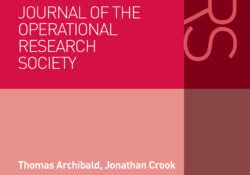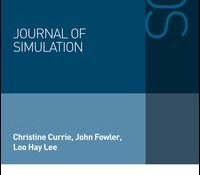tandfonline.com har udgivet en rapport under søgningen “Teacher Education Mathematics”: ABSTRACT ABSTRACT In recent decades, socioscientific issues (SSI) have been emerging from the interrelationship between science, technology, and society. For example, due to the COVID-19 pandemic, related decisions, like whether we need to ask people to use facemasks, is an SSI question being discussed internationally with no right or wrong answer. Controversial issues like SSI and the ability to make informed decisions need to be taught in school, which raises the question of whether teachers themselves are equipped with the skills required to make decisions on SSI. This study aimed to explore whether primary science pre-service teachers could consider multiple subject areas while making decisions on SSI in the context of abortion. Forty-two pre-service primary science teachers (third-year university students)… Continue Reading →
Like this:
Like Loading...

tandfonline.com har udgivet en rapport under søgningen “Teacher Education Mathematics”: Abstract Abstract Multiple strategies have been used in the National Health System (NHS) in England to reduce inappropriate antibiotic prescribing and consumption in order to tackle antimicrobial resistance. These strategies have included, among others, restricting dispensing, introduction of prescribing guidelines, use of clinical audit, and performance reviews as well as strategies aimed at changing the prescribing behaviour of clinicians. However, behavioural interventions have had limited effect in optimising doctors’ antibiotic prescribing practices. This study examines the determinants of decision-making for antibiotic prescribing in hospitals in the NHS. A system dynamics model was constructed to capture structural and behavioural influences to simulate doctors’ prescribing practices. Data from the literature, patient records, healthcare professional interviews and survey responses were used to parameterise… Continue Reading →
Like this:
Like Loading...
tandfonline.com har udgivet en rapport under søgningen “Teacher Education Mathematics”: ABSTRACT ABSTRACT The paper explores factors of importance for young people’s choice of upper secondary education and for their future life, from a student perspective. The paper builds on data from a questionnaire study, answered by 1,414 students in grade 9 (age 15–16) in Sweden, prior to their choice of upper secondary school. In addition, data from earlier studies, have been included. Results show that the majority plan to transit to further levels of education. There is, however, a group of students who opt to move directly into work. In relation to making an educational choice, the factors that dominate the decision-making processes of students are related to; interest and ability, wellbeing and fun, but also plans after upper secondary… Continue Reading →
Like this:
Like Loading...
tandfonline.com har udgivet en rapport under søgningen “Teacher Education Mathematics”: ABSTRACT Formulae display:?Mathematical formulae have been encoded as MathML and are displayed in this HTML version using MathJax in order to improve their display. Uncheck the box to turn MathJax off. This feature requires Javascript. Click on a formula to zoom. ABSTRACT Gaming simulations (games) for policy and decision making have been the neglected “sibling” of educational and training games. The latter have experienced a widespread usage by practitioners and researchers, while the former have had limited, yet slowly increasing, adoption by organisations. As a result, various issues developing and using these games remain unaddressed. This includes the design of games, their validation, the actual game sessions, and applying the resulting knowledge from games in organisations. In this paper, solutions… Continue Reading →
Like this:
Like Loading...



